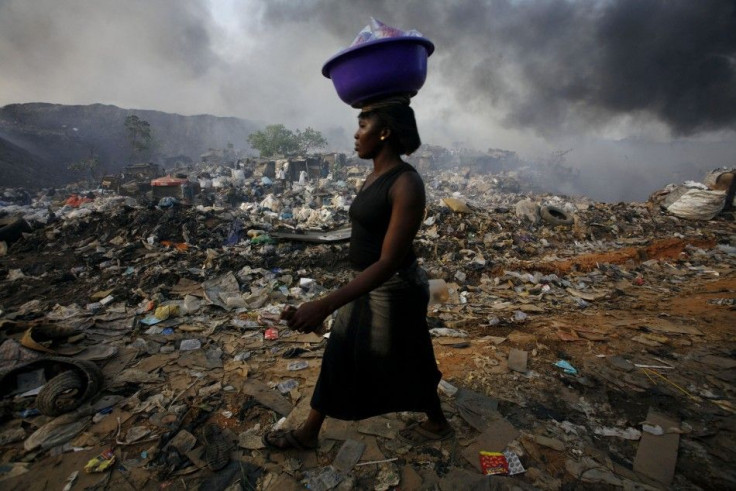Nigeria Poverty Rises as Government Deals With Corruption, Rebels

Despite overall growth in the country's economy, poverty in Nigeria is on the rise.
According to Nigeria's National Bureau of Statistics, 61 percent of the population now lives on less than $1 per day, which the World Bank considers to be “absolute poverty.” In 2004, 51 percent of Nigeria's population lived at that level.
The swelling trend of poeverty is expected to continue for at least another year.
But Nigeria is rich with oil and its economy is growing.
Nigeria is the third wealthiest country in Africa behind South Africa and Egypt -- although Egypt's economy has suffered in the wake of the 2011 revolution -- and the 44th biggest economy in the world, just two spots below Ireland and five under Hong Kong. However, Nigeria's government has also been steeped in corruption for decades and the oil money has gone into the pockets of the country's political elite.
Billions of dollars disappear into London and Swiss bank accounts, said Charles Ebinger, a Senior Fellow at the Brookings Institute.
It’s sickening because [Nigeria] should be one of the richest countries in the world.
About 80 percent of Nigeria's economy comprises the oil industry, but an almost complete lack of infrastructure investment and development means that it has limited refining capabilities and must import usable petroleum from abroad.
Additionally, Nigeria has the world's seventh biggest reserves of natural gas, but only produces a fraction of the energy it could potentially achieve. More than half of the country lives without electricity.
Tellingly, the most impoverished areas of the country were in the north, where a violent insurgency is currently growing. While Islamic rebel group Boko Haram has stated that its mission is to turn Nigeria into a sharia state, the militantce was born amidst a deepening sense of disconnect between the Nigerian people and the ruling elite. While Boko Haram may not be looking for financial gain, poverty and disenfranchisement may help explain why the group is gaining strength and support.
In areas where Boko Haram is most active, close to 80 percent of the population lives below the $1 per day level.
But it's not only people in the north who are fed up with the government. When President Goodluck Jonathan tried to remoel a fuel subsidy at the beginning of the year, Nigerians across the country protested.
The subsidy has kept the price of oil and gas affordable for Nigerian citizens and is the only way the that average citizen benefits from the nation's oil wealth. While the subsidy has been partially reinstated, the demonstrations sparked a national dialogue on the ingrained government corruption and the ills of the nation.
Motivated by the feeling of being cheated and being forced to remain in abject poverty in the midst of enough, Nigerians are now unilateral in their call for the sanitization of the polity and the stamping out of vices that eroded the sense of patriotism and threatened to plunge the nation into anarchy, an Op-Ed in Nigeria Intel said on Wednesday.
The National Bureau of Statistics did add in its report that poverty levels would have been worse if it weren't for government employment programs.
President Jonathan has pledged to study the NBS report.
© Copyright IBTimes 2025. All rights reserved.





















